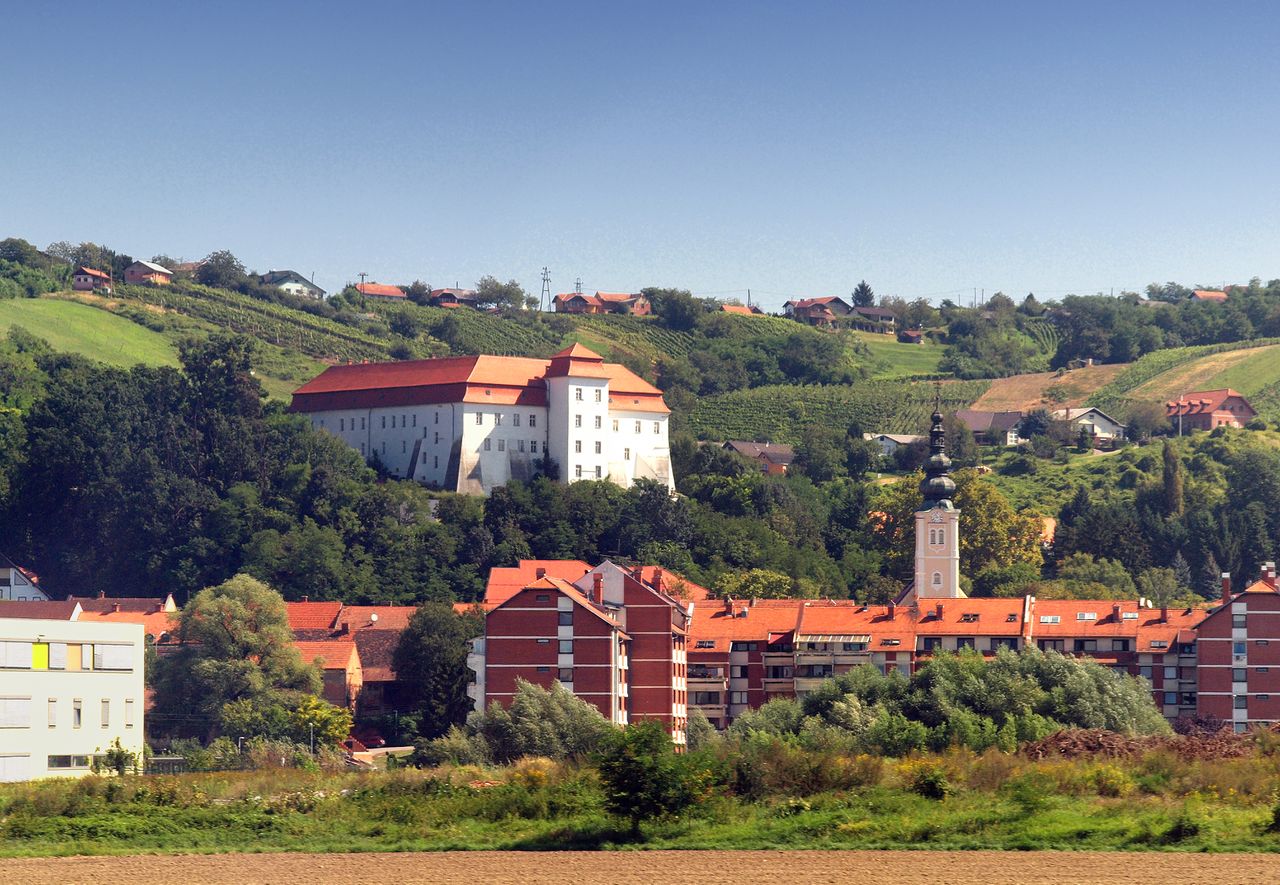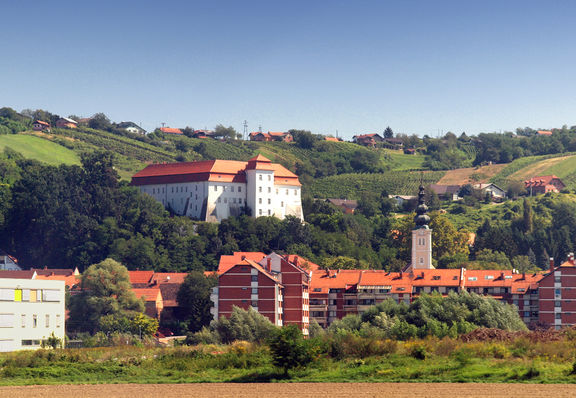Difference between revisions of "Lendava Castle"
| (One intermediate revision by the same user not shown) | |||
| Line 18: | Line 18: | ||
| opening hours = 9am–4pm Mon–Fri, 10am–2pm Sat, closed Sun and holidays | | opening hours = 9am–4pm Mon–Fri, 10am–2pm Sat, closed Sun and holidays | ||
| contacts = {{Contact | | contacts = {{Contact | ||
| − | | name = | + | | name = |
| − | | role = | + | | role = |
| − | | email = | + | | email = |
| − | | telephone = | + | | telephone = |
}} | }} | ||
}} | }} | ||
| Line 27: | Line 27: | ||
{{Teaser| | {{Teaser| | ||
| − | {{image|Lendava Castle 2009.jpg}} | + | {{wide image|Lendava Castle 2009.jpg}} |
Originally built in the 12th century as a fortification on the hill above the Lendava River, near the contemporary border with Hungary, the [[Lendava Castle]] is one of the most important historic monuments in the region. The present-day Baroque appearance of the castle dates from 1690–1707, following the withdrawal of the Turks from the area, when the Esterházys had it rebuilt to form an L-shaped building as a sign of their loyalty to the Emperor Leopold I. The castle became a show piece of Baroque architecture, and remained in the hands of the Esterhàzy family until World War I. | Originally built in the 12th century as a fortification on the hill above the Lendava River, near the contemporary border with Hungary, the [[Lendava Castle]] is one of the most important historic monuments in the region. The present-day Baroque appearance of the castle dates from 1690–1707, following the withdrawal of the Turks from the area, when the Esterházys had it rebuilt to form an L-shaped building as a sign of their loyalty to the Emperor Leopold I. The castle became a show piece of Baroque architecture, and remained in the hands of the Esterhàzy family until World War I. | ||
| Line 52: | Line 52: | ||
== External links == | == External links == | ||
| − | * [http://www.gml.si Lendava-Lendva Gallery and Museum | + | * [http://www.gml.si/en/kratka-zgodovina-dolnjelendavskega-gradu/ Short historz of the castle on the Lendava-Lendva Gallery and Museum website] |
| − | * [ | + | * [https://en.wikipedia.org/wiki/Gy%C3%B6rgy_Zala_(sculptor) György Zala on Wikipedia] |
| − | |||
{{gallery}} | {{gallery}} | ||
Latest revision as of 23:32, 3 December 2018
History
The castle is first mentioned in the records in 1192 as a property of the Hungarian noble family Bánffy and was theirs until the middle of the 17th century, when it fell to the Nádasdy family for a short period, and in the 18th century came under the management of the Eszterházy family. Today it is a massive two-storey building with a mansard roof overlooking the town of Lendava-Lendva. The walls are supported by massive buttresses and the south-west façade is emphasised with a central tower.
Museum displays and exhibitions
The archaeological exhibition Oloris presents the late Bronze Age settlement Dolnji Lakoš pri Lendavi. The historical exhibition The Castle Lies in Wait [Grad na preži] informs us about the Turks' invasions of the territory and presents the replicas of weapons and equipments of soldiers at that time. The numismatic exhibition, donated by the National Museum in Budapest, presents the development of Hungarian currency.
The memorial rooms are dedicated to György Zala (1858–1937) and Štefan Galič (1944–1997), artists and natives of Lendava.
There is a smaller lapidary arranged in the hall, of the leftovers of the castle walls and three Baroque sculptures from Lendava neighbourhood. The oldest exhibit is a fragment of the castle walls dating in 1675, the most interesting but are the Baroque statue of John the Baptist and of St. Anne with Mary from the Lendava hills.
The castle also hosts temporary exhibitions, as well as restoration workshops, which take place yearly under the supervision of the National Museum, Budapest, in order to restore as many museum items as possible in ten days.
See also
- Lendava-Lendva Gallery and Museum
- Lendava-Lendva International Fine Arts Colony
- LindArt International Young Artists’ Fine Arts Colony
External links
- Short historz of the castle on the Lendava-Lendva Gallery and Museum website
- György Zala on Wikipedia




